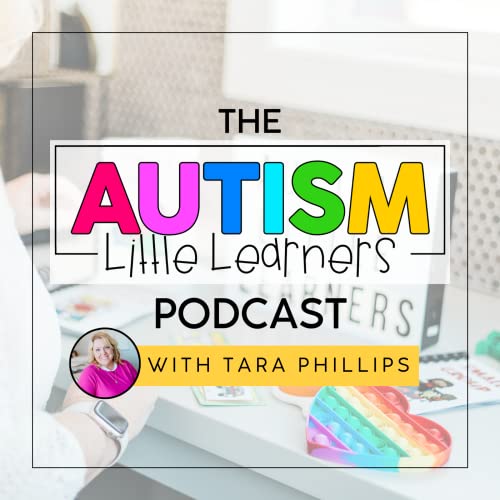In this episode of the Autism Little Learners podcast, I talked to Erin Forward, a speech pathologist specializing in trauma-informed feeding. Erin shares her journey and passion for working with neurodivergent children, emphasizing the importance of understanding trauma in feeding therapy. She discusses the principles of trauma-informed care, the nuances of each child's feeding experience, and the significance of building trust and engagement.
The conversation highlights the need for a shift in feeding therapy practices to better support children and their caregivers. Erin discusses the complexities of pediatric feeding disorders, emphasizing the importance of trauma-informed care and the role of caregivers in creating supportive mealtime environments. She highlights the need for understanding children's cues, the significance of allowing children to feel safe and in control during meals, and the necessity of slowing down to foster a positive feeding experience. The discussion also touches on the educational aspect of feeding and the importance of recognizing individual needs in children, particularly those with trauma or neurodiversity.
Bio
Erin Forward, MSP CCC-SLP, CLC is a speech-language pathologist and certified lactation counselor. Erin works as an SLP at a private practice She has advanced training in pediatric feeding and swallowing disorders, early language, AAC, and trauma, specifically for medically complex children. Erin holds an Expert DIR®Floortime Provider Certification and is a TBRI® Trained Practitioner. She graduated from the University of Pittsburgh with a Bachelor's degree in CSD and Psychology and graduated from the University of South Carolina with her Master's in Speech Pathology. She is the co-host of "First Bite: A Speech Therapy Podcast" with Michelle Dawson, MS, CCC-SLP, CLC, where she shares her experiences and evidenced-based practices from her time working in early intervention/home health, NICU/PICU, GI clinic, and outpatient clinic settings. Erin truly values building relationships and helping a child be their authentic self.
Links
First Bite Podcast: https://www.speechtherapypd.com/podcast?name=Firstbite
Erin Forward's Website & Course: https://www.erinforwardslp.com
Takeaways
· Feeding therapy must be individualized for each child.
· Trauma-informed care includes principles like safety and trust.
· Children learn about food similarly to how they learn about toys.
· Building trust with caregivers is essential for feeding success.
· Children need to feel safe before they can explore new foods.
· Engagement and communication can lead to feeding progress.
· Understanding a child's unique cues is vital in therapy.
· The relationship between therapist and child is key to success.
· Feeding Matters is crucial for early identification of feeding disorders.
· Understanding the psychosocial aspects of feeding is essential.
· Children need to feel safe and in control during mealtime.
· A dysregulated adult cannot help a dysregulated child.
· Children should have access to their safe foods without earning them.
· Caregivers must recognize their own feeding-related trauma.
· Creating a safe mealtime environment is vital for progress.
You may also be interested in these supports:
-
Visual Support Starter Set
-
Visual Supports Facebook Group
-
Autism Little Learners on Instagram
-
Autism Little Learners on Facebook
 19 mins
19 mins 50 mins
50 mins 21 mins
21 mins 58 mins
58 mins 13 mins
13 mins 19 mins
19 mins Jan 14 202518 mins
Jan 14 202518 mins 21 mins
21 mins